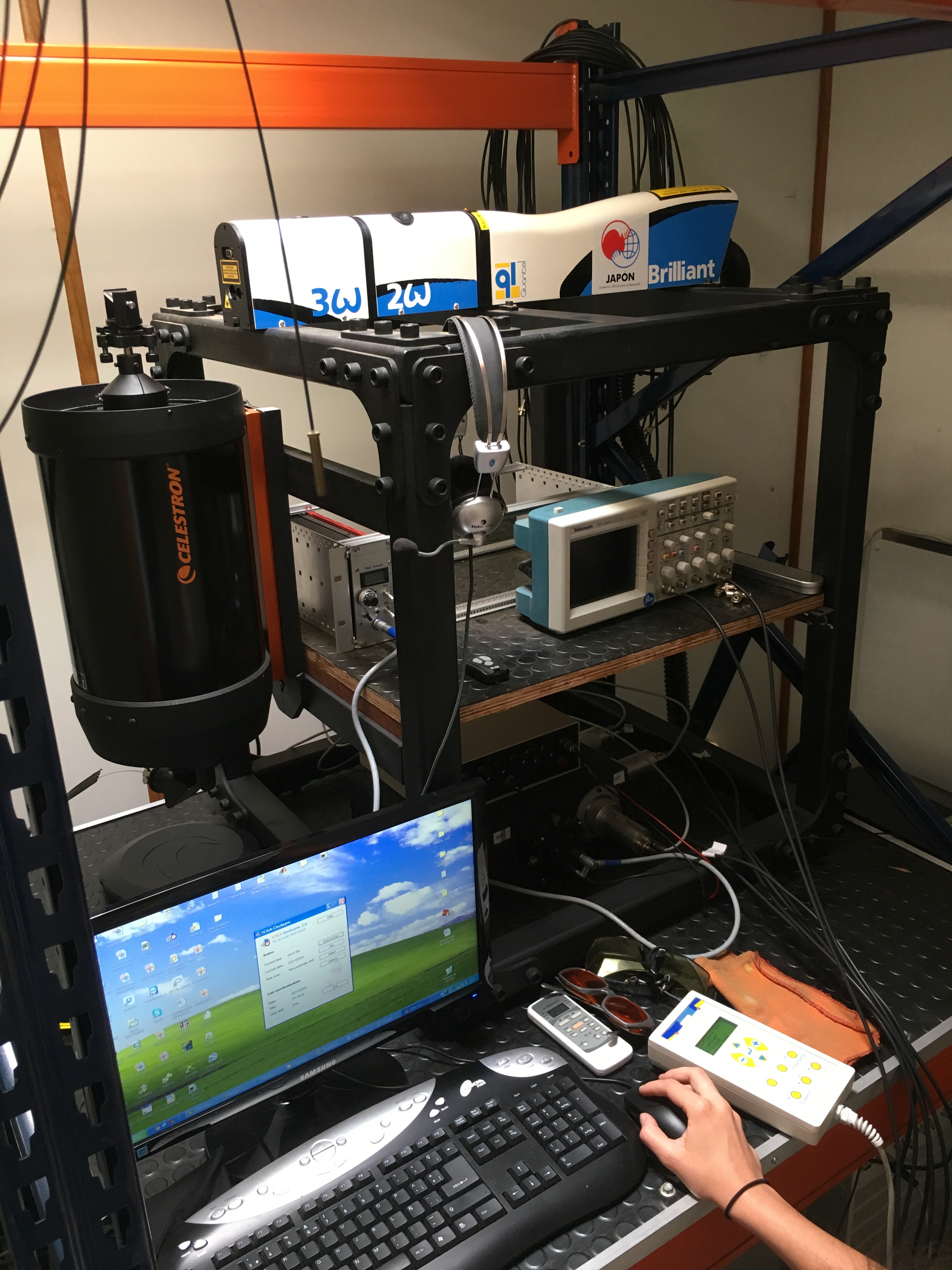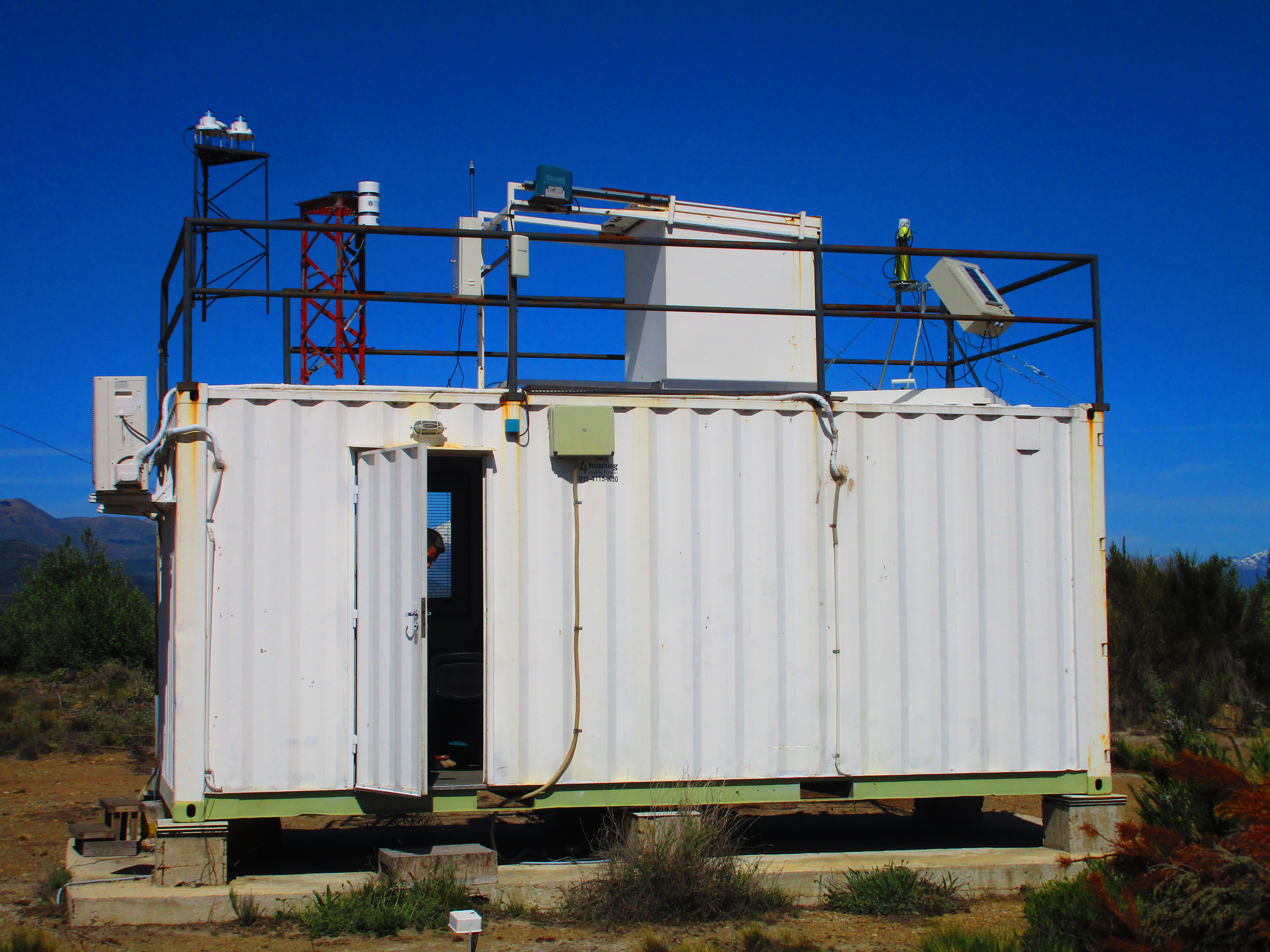CEILAP BARILOCHE INTERNATIONAL AIRPORT
Sites.BARILOCHEAIRPORT History
Hide minor edits - Show changes to markup
| Transmitter | Specification |
|---|
| Transmitter | Specification |
|---|
| Receiver | Specification |
|---|
| Receiver | Specification |
|---|
| Data acquisition | Specification |
|---|
| Data acquisition | Specification |
|---|
Raman detection: 607, 408 and 387 nm (nocturnal measurement only)
Raman detection: 607, 408 and 387 nm (nocturnal measurement only)
| Transmitter | Specification |
|---|---|
| Laser type | Solid stale Nd:YAG laser (Brilliant - Quantel) |
| Wavelength | 1064 nm, 532 nm, 355nm |
| Pulse energy | 360 mJ @ 1064nm |
| Repetition | 20 Hz |
| Divergence | < 0.7 mrad |
| Pulse duration | 4 - 6 nm |
| Expander | not used |
| FOV | --- |
| Rain proof | yes |
| Emission | Coaxial |
| Receiver | Specification |
| Telescope | Schmit-Cassegrain, Diameter = 20 cm Focal length = 2 m |
| Detectors | PMT 355 - Hamamatsu H6780-03 PMT 532 - Hamamatsu H6780-20 APD 1064 - LICEL APD 3.0 PMT 387 - Hamamatsu H6780-03 PMT 408 - Hamamatsu H6780-03 PMT 607 - Hamamatsu H6780-20 |
| Data acquisition | Specification |
| Detection range (approximate) | 350 m - 13 km |
| Range resolution | 7,5 m |
| Elastic channels | Transient recorder. 12 Bit, 20Ms/s. (TR20-12bit-LICEL) |
| Raman channels | Transient recorder. 250 MHz. (TR20-12bit-LICEL) |
(:Title CEILAP BARILOCHE INTERNATIONAL AIRPORT:) (Rainproof, Remote operation: yes)
The lidar is operated at the Bariloche International Airport by the Argentinean Meteorological Sevice assisted remotely by CEILAP (Centro de Investigaciones en Láseres y Aplicaciones). Other operators may be needed to perform 20/24 measurements. This lidar was conceived to monitor range-resolved (100 m to 13 km AGL) aerosol optical properties from the IR to the near UV spectral region in the whole troposphere. Its emission system is a 20 Hz – 150 mJ (1064 nm) solid state Nd:YAG laser (Brilliant – Quantel). The fundamental laser line is doubled and tripled to obtain 532 nm and 355 nm respectively. The backscattered radiation is collected by an f/10, 2 m focal length Cassegrainian telescope, focused into a 1 mm diameter optical fiber to achieve a field of view of 0.5 mrad. The detection unit is a dichroic/interference filter-based polychromator unit that separates the elastic and Raman-shifted backscattered radiation. The detection units are photomultiplier modules (Hamamatsu H6780-03) for the ultraviolet and H6780-20 visible wavelengths and a detector module (LICEL) based on an NIR enhanced Si-avalanche photodiode set (EG&G) for the infrared wavelength.
Rayleigh detection: 1064, 532 and 355 nm Raman detection: 607, 408 and 387 nm (nocturnal measurement only)

